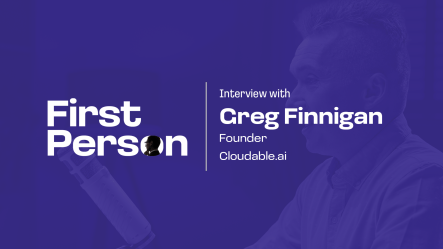
Businesses are racing to adopt AI. But siloed tools, fragmented efforts, and lack of trust are slowing progress.
A new Forrester study, commissioned by Tines, surveyed over 400 IT leaders across North America and Europe. The study shows that governance and privacy compliance are both the top priorities and the biggest blockers to scaling AI.
The study also found that 88% of IT leaders say AI adoption remains difficult to scale without orchestration. Orchestration connects systems, tools, and teams so AI can run securely, transparently, and efficiently at scale. Without it, AI adoption stays fragmented and organizations struggle to deliver value.
The takeaway is clear: IT is primed to orchestrate AI across the enterprise. But first, teams must overcome blockers in governance, strategic alignment, and trust.
The biggest blockers to scaling AI
When it comes to scaling AI, governance is both a top priority and a top barrier. Forrester’s study found that over half (54%) of IT leaders say ensuring AI complies with privacy, governance, and regulatory standards is the highest priority for the next 12 months. Yet more than a third (38%) cite governance and security concerns as the biggest blockers to scaling AI.
This reflects a growing tension. A compliance-first approach to AI is essential. But if it isn’t effectively embedded into AI initiatives, it can also stall innovation and competitiveness.
AI introduces risks that existing governance processes weren’t built to handle, with many traditional approaches proving inadequate for AI’s real-time demands, speed, and complexity. Gaps in governance expose organizations to liabilities including bias, ethical breaches, shadow AI, and compliance failures that can lead to regulatory penalties and reputational damage.
Beyond security and governance concerns, the other top challenges when scaling AI include lack of budget or executive sponsorship, concerns about ROI, and fragmented ownership. Siloed AI initiatives and disconnected tools also present a barrier, making it difficult to connect systems across departments for greater visibility, control, and effectiveness.
Orchestration is the missing link to alignment, trust, and scale
AI orchestration offers a way forward. It unifies people, processes, technology, and workflows into a connected system that improves efficiency, transparency, and governance, addressing many of the key blockers that stall scaling AI.
Enabling this type of oversight is a top priority. According to the research, 73% say visibility across AI workflows and systems is critical. To achieve this, nearly half (49%) of organizations are looking for partners that provide end-to-end centralized solutions to overcome siloed workflows and fragmented AI efforts.
The cost of inaction is high. Without orchestration, the study shows, organizations face difficulties like:
- Ensuring AI practices are ethical and transparent (50%)
- Security concerns related to data access, compliance issues, inconsistent governance, auditing, and shadow AI (44%)
- Lack of employee trust in the outcomes generated by AI (40%)
These challenges don’t just slow down your AI initiatives: they risk halting progress on core business goals, damaging brand reputation, and undermining trust.
IT is primed to lead orchestration
Some 86% of respondents believe that IT is uniquely positioned to orchestrate AI across workflows, systems, and teams. But while organizations are increasingly recognizing IT as an enabler of efficiency and innovation, many still underestimate its broader strategic potential.
Today, 40% of respondents say IT’s reactive focus on troubleshooting and uptime is what holds it back from being seen as a driver of business outcomes at the board level. Similarly, 38% believe that other departments frequently or occasionally overlook or underestimate IT’s potential to improve overall organizational efficiency.
With AI orchestration, IT has the opportunity to take a key strategic role that shapes the future of their organization’s success. IT leaders are ready: 38% of survey respondents believe that IT should own and lead AI orchestration, while 28% say it should act as the coordination hub between different business functions.
IT is primed to lead this charge as they’re well-placed to connect strategy, teams, and data. Through AI orchestration, they can facilitate secure, compliant adoption and scaling of AI that meets robust governance requirements.
This won’t just fuel organization-wide efficiency, but will unlock tangible business value, such as enhancing collaboration between business units, accelerating digital transformation, and improving employee productivity, positioning IT as significant drivers of impact.
Key recommendations
To strengthen its strategic role, IT should:
- Orchestrate AI for visibility and alignment: Lead orchestration to connect tools, improve transparency, and align teams.
- Embed governance by design: Orchestration provides a framework to build compliance and security into AI workflows from the start, ensuring consistency at scale.
- Frame outcomes in business value: To secure executive sponsorship, IT should frame orchestration’s impact in terms of ROI, efficiency gains, and revenue opportunities unlocked.
For more insights on how IT can leverage AI orchestration to unlock strategic value, read the full study: Unlocking AI’s Full Value: How IT Orchestrates Secure, Scalable Innovation.









